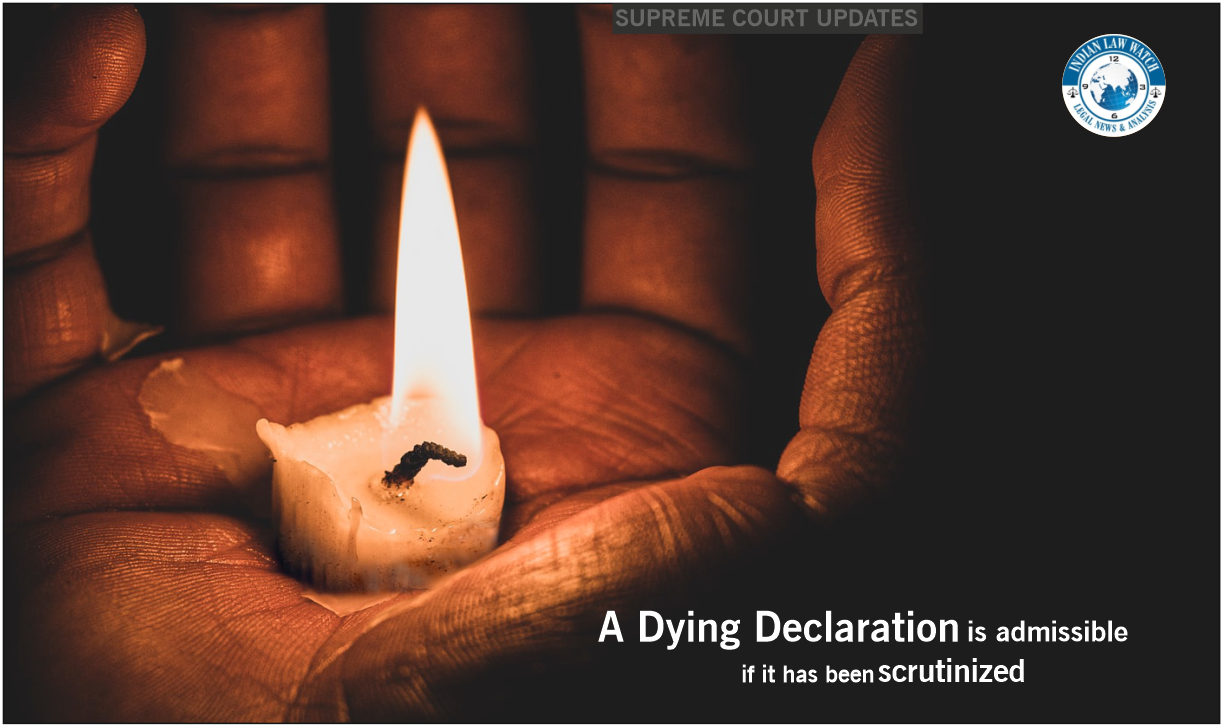

The Supreme Court held that a dying declaration can be admissible if the same has been scrutinized and passes the reliability test. Though the court must be satisfied by the truthfulness of the same, there is no necessity to provide corroborative evidence in all the cases.
Case Name: Kamal Khudal v. State of Assam, Criminal Appeal No. 470 Of 2015
The Supreme Court held that a dying declaration can be admissible if the same has been scrutinized and passes the reliability test. Though the court must be satisfied by the truthfulness of the same, there is no necessity to provide corroborative evidence in all the cases.
The present appeal was filed against a Gujrat High Court judgment upholding the conviction of the accused under Section 302 of the Indian Penal Code (IPC). The main issue that the Apex Court dealt with is whether the dying declaration itself amounts to substantive evidence.

-
The counsel for the appellant argued that the case on hand is one of “not reliable legal evidence” as the entire conviction is based on an oral dying declaration alleged to have been made by the deceased before one, Hanu Khetrapal, and the courts below should have insisted for corroboration before relying upon an oral dying declaration which otherwise is a weak piece of evidence.
-
The court noted that the idea of dying declaration as evidence comes from the maxim “Nemo moriturus praesumitur mentire”, i.e., a man will not meet his maker with a lie in his mouth. It is believed that when a man is at the point of death and when every expectation of this world is gone, it hushes away every motive of a lie.
“Truth sits upon the lips of a dying man.”
-Matthew Arnold
The court observed that it is pertinent that a dying declaration, oral or written, passes a test of reliability as it is a statement made in the absence of the accused and there is no opportunity for the accused even to put it through the fire of cross-examination to test is genuinity or veracity. Therefore, dying declarations should be subject to close scrutiny. However, if the court is satisfied that it is a truthful version as to the circumstances in which the death resulted, the law does not expect that there should be corroboration before it can be relied upon. Further, in cases where there are infirmities and the court does not find it safe to base any conclusion on it without some further evidence to support it, the question of corroboration arises.
Based on the factual matrix of this case, the court held that High Court was justified in accepting the oral dying declaration made by the deceased as one reliable and inspiring confidence because the injuries as described by the witness matched the injuries described in the medical report from the post mortem of the deceased. Further, it can be noticed that there was something wrong from the fact that the accused was absconding after the incident and was only found by the police, eight days after the incident.





